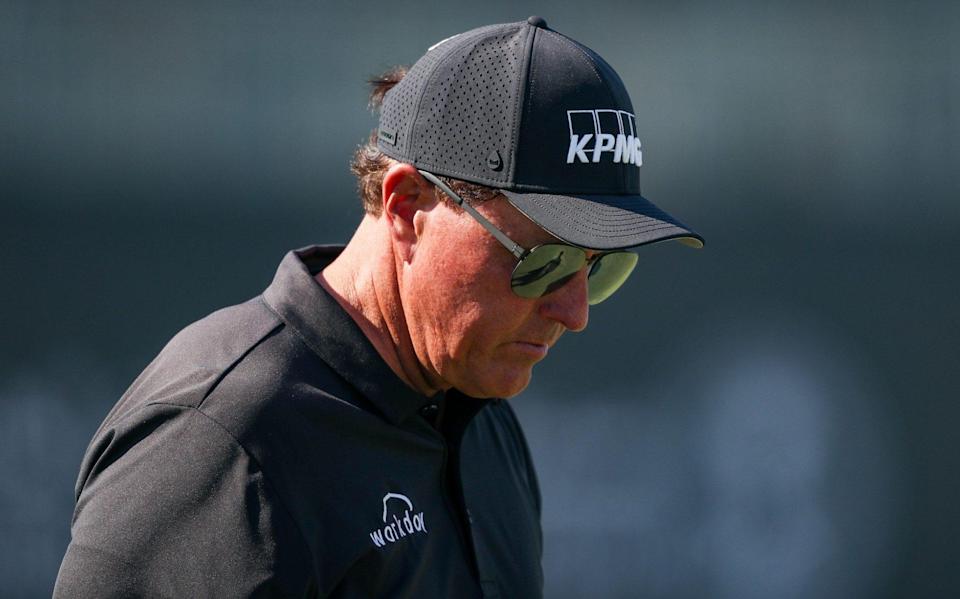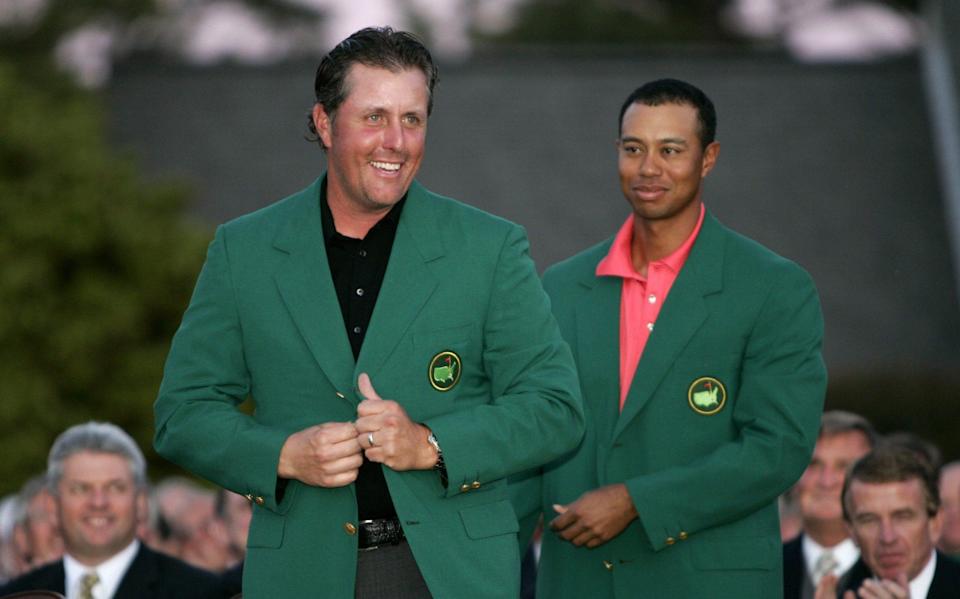
After debasing himself with a cynical flirtation with golf’s Saudi-backed rebel tour, Phil Mickelson will not require his aptitude for mathematics to count his remaining allies.
American golf’s avuncular ‘people’s champion’, who has thrilled and charmed with a carefully cultivated public image for almost three decades, now faces the possibility of pariah status.
In the battle for golf’s soul between traditional paymasters the PGA Tour and potential usurpers the Super Golf League, fuelled by Saudi petro dollars, Mickelson attempted to play both sides against each other. In a now notorious piece of utilitarian calculation, publicised in extracts of an upcoming biography, Mickelson listed the Kingdom’s crimes and atrocious human rights record before concluding they were worthy of accommodation for a “once-in-a-lifetime opportunity to reshape how the PGA Tour operates.” Many assumed the quotes were satirical, but they assumed wrong.
The result was to appear duplicitous in the eyes of the PGA Tour, but also insincere and indiscreet to the other side of the negotiation. Mickelson’s description of the Saudis as “scary motherf—–s” to deal with appalled fellow pros. Justin Thomas branded Mickelson’s comments “egotistical” while Rory McIlroy added naive, selfish and ignorant in a scathing condemnation. The publication of Mickelson’s comments have been a catalyst for the Super Golf League unravelling, with Bryson DeChambeau and Dustin Johnson hastily pledging allegiance to the PGA Tour.
Mickelson is left reeling from a spectacular decline in popularity with the golfing public, something which will hit him hard. The 51-year-old has inspired Arnold Palmer-like devotion from American crowds, who were won over by his toothy grin and willingness to engage with fans – particularly when they were set against Tiger Woods’ blinkered nature in the heat of battle. The two Californian superstars were rivals from junior golf and there was genuine antipathy between them. While Woods had many backers, he was by no means certain to command majority support from galleries in a showdown against Mickelson.
The left-hander’s dashing, devil-may-care style and tendency to verge from triumph to disaster earned him the moniker ‘Phil the Thrill’. While Woods swept to major championships in his early 20s, Mickelson was 33 when he won his first at the 2004 Masters, a victory which was celebrated rapturously. That was the first of six majors, the most remarkable of which came at last year’s USPGA Championship at Kiawah Island when Mickelson reversed the form book to become golf’s oldest major champion. He has featured on adverts alongside David Beckham and Arnold Schwarzenegger for the California tourist board, and collaborated with ExxonMobil to promote maths and science education with his wife Amy.
In short, Mickelson is as American as apple pie, and shared the tendency to be a touch sugary. That permanent smile and languorous stride made some observers think he was rather gormless, perhaps even a few clubs short of a full set. Nothing could be further from the truth. Mickelson is extremely sharp, possibly too smart for his own good in light of recent events. He is fascinated with numbers and percentages, with his brazen risk-taking on the course part of a considered strategy, stating in 2017: “My math is different from anyone else.”


Before DeChambeau, Mickelson was golf’s original mad scientist, who would happily offer chapter and verse about types of golf ball dimple or the precise effects of morning dew on club face grooves. He was the first player of note to use a 64-degree wedge and famously used two drivers to win the 2006 Masters.
Given his competitiveness, numeracy and earnings of more than £30million a year, it should be no surprise that gambling has been one of the more intriguing subplots through Mickleson’s career.
Tales of his cash games in practice rounds on Tour, with the best players in the world fighting tooth and claw to win his hard-earned ‘Ben Franklins’, are legendary if short on detail. Mickelson once rebuked young Australian Ryan Ruffels for going public with the news he had landed a $2,500 (around £1,800) match bet at odds of 2-1 aged just 17.
Away from the course, in 2017 it was revealed in court documents that Mickelson had paid a sports betting debt of $1.9million to Las Vegas gambler and entrepreneur William T. Walters. It is the only loss of this type in the public domain, and it should be noted that in isolation, it is money Mickelson can afford to lose. In an unseemly precursor to the Super League furore, Mickelson and Woods were criticised for playing in a gaudy 2018 exhibition, dubbed ‘The Match: Tiger vs Phil’, worth $9million. The location? Las Vegas.
The impression given was of an immensely wealthy individual with slightly too keen an interest in making a fast buck, trading his heritage status for easy earnings. Nothing wrong with that in a free society, perhaps, though do not be surprised if the applause and adulation wanes.
The perception has solidified since Mickelson’s Saudi episode, and he might need more than a lob wedge and natural talent to execute his next recovery.
